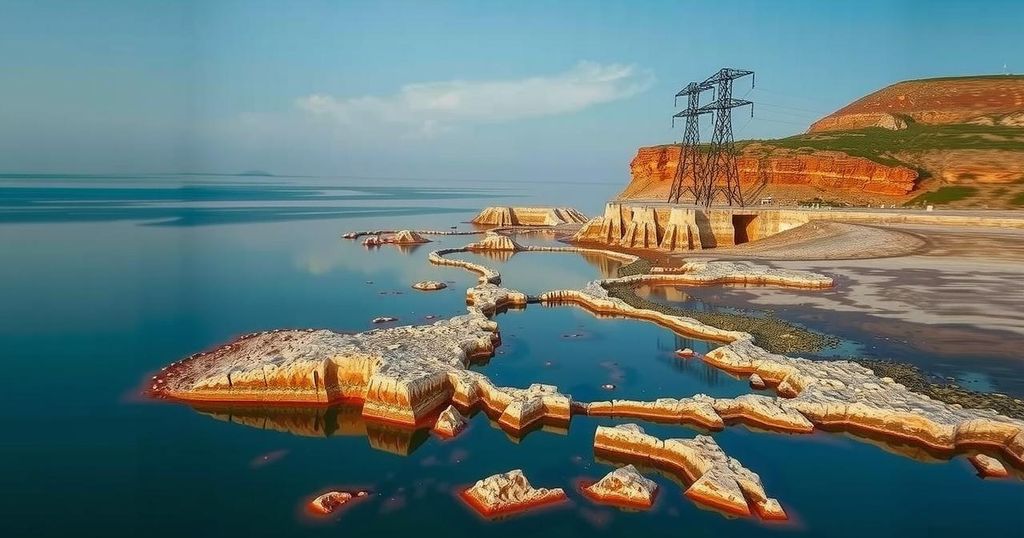A severe drought has drastically lowered Lake Kariba’s water levels, threatening electricity supply for Zambia and Zimbabwe, leading to extensive power outages. As a result, economic forecasts for both countries are being adjusted downward. There is an increasing push for new energy sources, particularly coal and solar, as officials remain hopeful for early rains to provide relief amidst the crisis.
A severe drought has significantly lowered the water levels in Lake Kariba, the largest artificial lake globally, jeopardizing the functioning of the dam that supplies electricity to Zambia and Zimbabwe. The combination of prolonged dry conditions and the El Niño phenomenon has resulted in extreme power shortages, forcing Zambia to endure up to 21 hours of power cuts daily, while Zimbabwe faces 17 hours of outages. This situation is critically affecting local economies as the output from the dam’s power stations has been drastically reduced, with only one out of six turbines operational on Zambia’s side of the lake. In light of this crisis, both nations are prioritizing the establishment of diversified energy sources, such as coal and solar energy to mitigate future risks. Although the forthcoming rainy season in Zambia is projected to be normal, officials express hope for earlier rainfall to help alleviate the current energy crisis, amidst downward revisions of economic growth forecasts for both countries.
Lake Kariba plays a crucial role in supplying hydroelectric power to Zambia and Zimbabwe, and its current low water levels pose a significant risk to energy security in both nations. The region is grappling with the adverse effects of climate phenomena, mainly the El Niño, which has intensified the already severe drought conditions. These circumstances highlight the vulnerability of the countries’ reliance on hydroelectric power and the pressing need for alternative energy solutions. With the economic repercussions of power outages affecting millions, both governments are under pressure to implement long-term strategies to diversify their energy portfolios.
In conclusion, the current drought affecting Lake Kariba presents a significant threat to the energy supply of Zambia and Zimbabwe, leading to unprecedented power cuts that impact the livelihoods of their populations and strain their economies. The urgent need for diversified energy generation methods has become evident as both nations look toward coal and solar initiatives. While hopes for an upcoming rainy season may offer a temporary reprieve, the necessity for systemic changes in energy sourcing remains clear.
Original Source: www.africa.com






